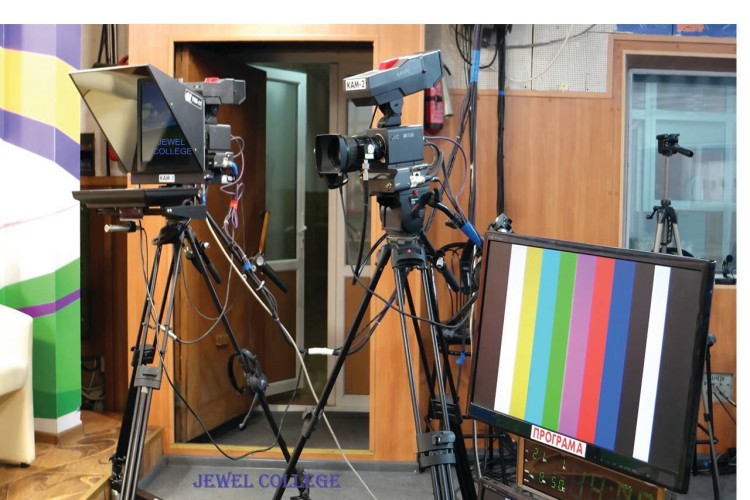
The landscape of journalism is undergoing a seismic shift, driven by the relentless advancement of digital technologies and the burgeoning influence of artificial intelligence . This transformation is not merely incremental; it represents a fundamental change in how news is produced, disseminated, and consumed. The dramatic increase in research focusing on the intersection of AI and journalism underscores the profound nature of this evolution . Industry leaders overwhelmingly recognize the critical role of AI investment for the survival and future relevance of news organizations .
AI's impact is multifaceted, permeating various journalistic functions from automating routine news writing and enhancing fact-checking to enabling sophisticated data analysis for investigative reporting and personalizing news delivery . This technological integration allows for faster reporting, reduces the burden of repetitive tasks, improves accuracy, enhances audience engagement, and expands the reach of news globally . The adoption of AI is becoming commonplace in newsrooms, with AI assistants poised to support journalists in research, content development, and audience interaction . The trajectory points towards increasing collaboration between journalists and AI, alongside advancements in AI-generated content that will likely improve in quality and sophistication . This necessitates a strong focus on ethical guidelines and regulations to ensure responsible AI implementation in media .
However, this technological revolution unfolds against a backdrop of significant challenges for the journalism industry. Public confidence in journalism has declined alarmingly in recent years . This erosion of trust is compounded by the widespread dissemination of misinformation and fake news online . Furthermore, traditional avenues for reaching audiences are shifting, with referral traffic from major social media platforms experiencing substantial declines . The potential disruption of search engines by AI-driven interfaces that provide direct answers to queries presents a further challenge to news organizations' visibility and traffic . Journalists themselves report increasing pressures from downsizing, resource limitations, and the need to compete with the constant influx of online misinformation . The rise of sophisticated manipulated content, such as deepfakes, adds another layer of complexity to the challenge of verifying information .
Navigating this complex future requires a new breed of journalist equipped with a diverse skillset . The ability to blend technological proficiency with core journalistic values is paramount . Foundational skills in accurate reporting, investigative research, and rigorous fact-checking remain essential . Simultaneously, journalists must be adept at crafting compelling narratives and engaging audiences effectively . Proficiency in digital technologies, including content management systems, social media engagement, and multimedia production, is now indispensable . A strong understanding of media law and ethics is crucial for upholding journalistic integrity in the digital age . Moreover, skills in data journalism and analytics are increasingly vital for uncovering trends and producing data-driven stories . Critical thinking and a healthy skepticism are necessary to navigate the complex information landscape .
Jewel Technical College's School of Journalism and Media Studies is strategically positioned to equip the next generation of journalists with the competencies required for this evolving field . The college's curriculum is designed to reflect the latest industry trends, incorporating multimedia storytelling, data journalism, social media strategy, and audience engagement . Experienced faculty members with practical industry experience provide students with real-world insights and relevant education . A strong emphasis on hands-on learning through internships, practicums, and collaborative projects with media organizations ensures that graduates gain practical experience and build professional portfolios . The college's state-of-the-art facilities, including multimedia labs and editing suites, provide access to the latest industry tools . Furthermore, Jewel Technical College has cultivated strong connections with media organizations, offering students valuable networking opportunities and potential job placements . The diverse programs offered, including a Diploma in Journalism and Media Studies and specialized certificate programs, cater to various career aspirations within the field . Notably, the Diploma in Digital Journalism specifically addresses the growing demand for professionals skilled in online content delivery . The curriculum emphasizes core journalism skills, media law and ethics, critical thinking, and fact-checking . The success of alumna Joyce Wanjiku Mwangi, now a presenter and anchor at Mwangaza FM , exemplifies the effectiveness of Jewel Technical College's training . As a Christian-based institution, Jewel Technical College also instills a strong ethical foundation in its students, preparing them to navigate the complex ethical dilemmas of modern journalism .
Jewel Technical College stands as a pivotal institution for the future of journalism. Its forward-thinking curriculum, emphasis on practical experience, strong industry connections, and commitment to ethical principles equip graduates with the multifaceted skills necessary to thrive in a rapidly transforming industry. By proactively addressing the challenges and embracing the opportunities presented by digitalization and AI, Jewel Technical College is not just preparing journalists for the future; it is actively shaping it.